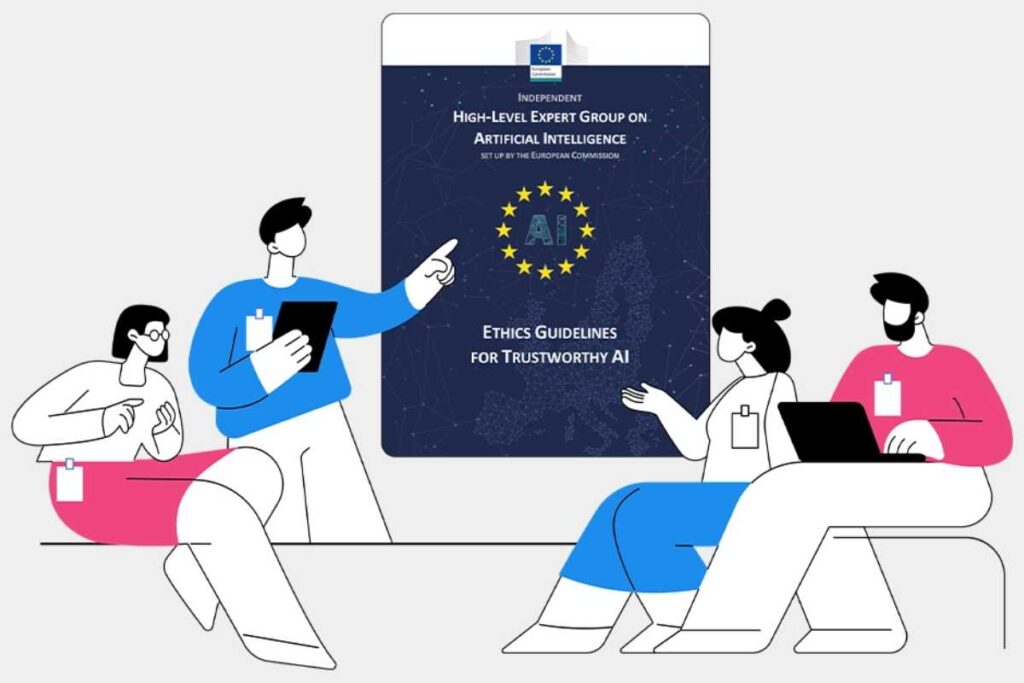The Double-Edged Sword of Innovation
Emerging technologies, from artificial intelligence (AI) and biotechnology to blockchain and quantum computing, are transforming the way we live, work, and connect. These innovations promise groundbreaking benefits: improved healthcare, smarter cities, personalized education, and more efficient business operations. Yet, as technology evolves at a rapid pace, so do the ethical dilemmas that accompany it.
How do we ensure AI makes fair decisions? Should genetic editing be allowed in humans? What are the privacy implications of facial recognition or brain-computer interfaces? These are not just technical questions; they are moral crossroads that challenge our principles, social structures, and laws.
In this article, we will explore the most pressing ethical dilemmas posed by emerging technologies, examine real-world examples, and suggest frameworks for navigating this complex landscape. The goal is not to hinder progress, but to ensure it serves humanity with integrity, responsibility, and inclusivity.
1. Artificial Intelligence: The Ethics of Autonomy, Bias, and Accountability
Autonomy vs. Human Control
As AI systems become more autonomous, from self-driving cars to military drones, the ethical question arises: When should a machine make decisions without human oversight? In life-or-death scenarios, such as autonomous weapons or healthcare diagnostics, delegating control to AI raises serious concerns about responsibility and safety.
Example: In 2018, Uber’s self-driving car killed a pedestrian in Arizona. While the human safety driver was distracted, the car’s sensors had detected the pedestrian but failed to take action. Who was at fault—the company, the algorithm, or the operator?
Algorithmic Bias
AI is trained on data, and data reflects human biases. As a result, AI systems can reinforce systemic racism, sexism, or other forms of discrimination.
Example: Studies have shown that facial recognition systems misidentify people of color at much higher rates than white individuals. In law enforcement, this has led to wrongful arrests and racial profiling.
Accountability and Transparency
Who is responsible when AI fails? Is it the developer, the deployer, or the algorithm itself? Moreover, many AI systems are “black boxes”, their decision-making process is not transparent even to their creators.
Ethical Recommendation:
- Implement AI explainability standards
- Establish legal frameworks for accountability
- Ensure diverse datasets and inclusive development teams
2. Data Privacy and Surveillance: Consent in a Digital World
Informed Consent and Data Ownership
In an era where data is currency, our personal information is constantly collected, often without our explicit knowledge. Social media platforms, mobile apps, wearable devices, and even smart home technologies collect, store, and share user data.
Example: The Cambridge Analytica scandal revealed how Facebook data was harvested to manipulate political opinions without user consent.

Ethical Dilemma:
- Is clicking “I agree” sufficient for true informed consent?
- Should users own and monetize their data?
Surveillance and Civil Liberties
Governments and corporations now have tools to monitor citizens at an unprecedented scale. While surveillance can enhance security, it also threatens privacy and freedom.
Example: In China, facial recognition and social credit systems are used to track behavior, restrict travel, and influence public life.
Ethical Recommendation:
- Create privacy-by-design systems
- Legislate transparent surveillance policies
- Empower individuals with control over their data
3. Biotechnology and Genetic Engineering: Playing God or Saving Lives?
CRISPR and Human Gene Editing
The advent of CRISPR gene-editing has opened possibilities to eliminate hereditary diseases, enhance human traits, and even design future generations. But where do we draw the line?
Example: In 2018, Chinese scientist He Jiankui shocked the world by announcing he had created the first genetically edited babies. The scientific community condemned the act, citing a lack of consent and unknown long-term effects.
Ethical Questions:
- Should we enhance intelligence or physical traits?
- Who decides which genes are “desirable”?
Biohacking and DIY Biology
Citizen scientists now have access to tools for altering biology outside traditional institutions. While this democratizes science, it also poses risks related to safety, ethics, and regulation.
Ethical Recommendation:
- Develop international bioethics guidelines
- Encourage public dialogue and democratic oversight
- Ensure equitable access to genetic technologies
4. Robotics and Human Labor: Innovation vs. Job Displacement
Automation and the Future of Work
As robots and AI take over repetitive tasks in factories, logistics, and even creative fields, millions of jobs are at risk of becoming obsolete.
Example: Amazon’s warehouse robots have increased efficiency, but have also raised concerns about worker exploitation and job elimination.
Ethical Dilemma:
- How do we balance technological efficiency with social responsibility?
- Should companies that benefit from automation be required to retrain displaced workers?
Human-Machine Interaction
The growing use of social robots in elder care, childcare, and education raises questions about emotional dependency, human connection, and ethical boundaries.
Ethical Recommendation:
- Design human-centric automation strategies
- Invest in education and workforce reskilling
- Establish regulations around social robotics
5. Blockchain and Decentralization: Trust Without Institutions?
Decentralized Power vs. Regulatory Control
Blockchain promises decentralization, transparency, and security, eliminating the need for traditional institutions. But this also creates challenges for regulation, taxation, and consumer protection.
Example: The rise of cryptocurrencies like Bitcoin has enabled financial freedom for some, but also facilitated money laundering, scams, and tax evasion.

Ethics in Smart Contracts and DAOs
Smart contracts execute automatically without human intervention, and Decentralized Autonomous Organizations (DAOs) make governance decisions via code. While revolutionary, these systems lack ethical nuance and adaptability.
Ethical Dilemma:
- Can law and ethics be coded into smart contracts?
- Who is liable when things go wrong?
Ethical Recommendation:
- Build ethical frameworks into decentralized technologies
- Encourage hybrid models with human oversight
- Design governance protocols for accountability
6. Brain-Computer Interfaces and Neurotechnology: The Final Frontier
Merging Mind and Machine
Companies like Neuralink are developing brain-computer interfaces (BCIs) to treat neurological disorders and even enhance cognition. While potentially life-changing, BCIs also open a Pandora’s box of ethical concerns.
Potential Risks:
- Loss of mental privacy (thought hacking)
- Emotional manipulation via neurostimuli
- Economic inequality in cognitive enhancement
Ethical Recommendation:
- Prioritize mental privacy as a human right
- Conduct long-term safety and ethical impact studies
- Develop equitable access models
7. The Ethics of Speed: Innovation Outpacing Regulation
One of the greatest ethical dilemmas in technology is the mismatch between the pace of innovation and the slowness of regulation. Lawmakers often lack the technical knowledge or political consensus to regulate fast-moving tech sectors effectively.
Solution:
- Foster interdisciplinary collaboration between ethicists, technologists, and policymakers
- Create agile regulatory bodies capable of rapid response
- Involve public stakeholders in ethical debates
Frameworks for Ethical Technology Development
To address the growing ethical challenges, several frameworks have been proposed:
1. The IEEE Ethically Aligned Design Principles
- Human rights
- Accountability
- Transparency
- Environmental well-being

2. The European Commission’s Ethics Guidelines for Trustworthy AI
- Lawfulness
- Ethical purpose
- Technical robustness
- Societal benefit
3. Responsible Innovation Model (UK)
- Anticipate consequences
- Reflect on purpose and values
- Engage with stakeholders
- Act responsibly
The Role of Businesses and Tech Leaders
Companies have a profound responsibility to embed ethics into design, deployment, and governance. Ethical lapses not only risk public backlash but also hinder innovation in the long run.
Best Practices:
- Conduct ethical impact assessments
- Establish internal ethics review boards
- Ensure transparency in algorithms and decision-making
- Promote diversity and inclusion in tech teams
Conclusion: Innovation with a Moral Compass
Emerging technologies have the power to uplift societies, cure diseases, democratize education, and connect the world. But without ethical oversight, they can just as easily exacerbate inequality, violate privacy, or endanger human rights.
Navigating these ethical dilemmas requires courage, collaboration, and conscience. We must view technological progress not just through the lens of possibility, but through the lens of responsibility. Policymakers, technologists, educators, business leaders, and citizens all play a role in shaping a future where innovation serves the greater good.
As we stand on the cusp of profound transformation, let us remember: Just because we can, doesn’t always mean we should. But if we must, let’s do it wisely, ethically, and with humanity at heart.

